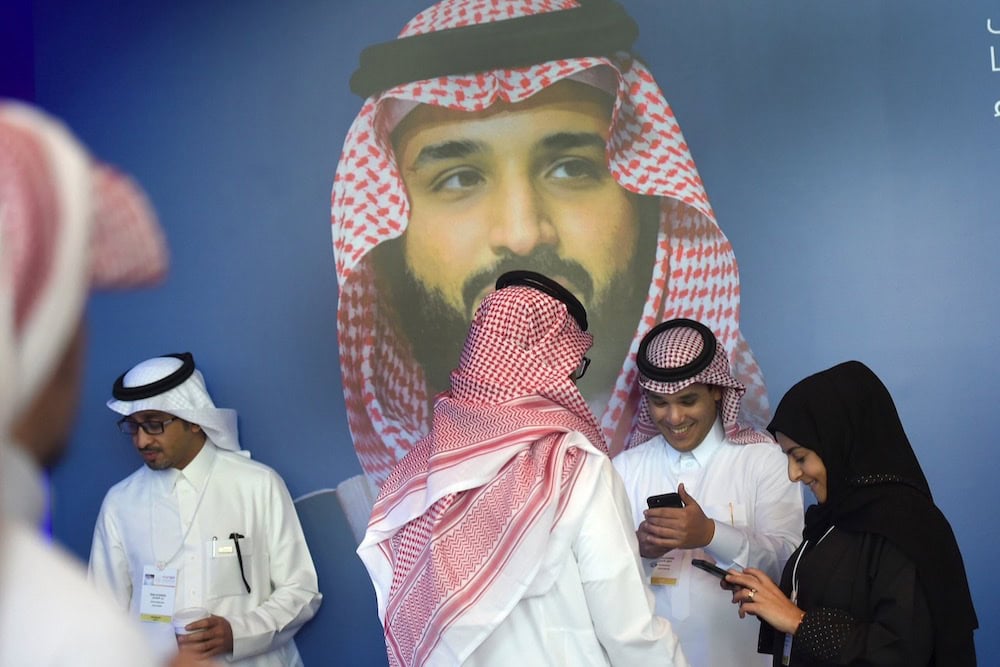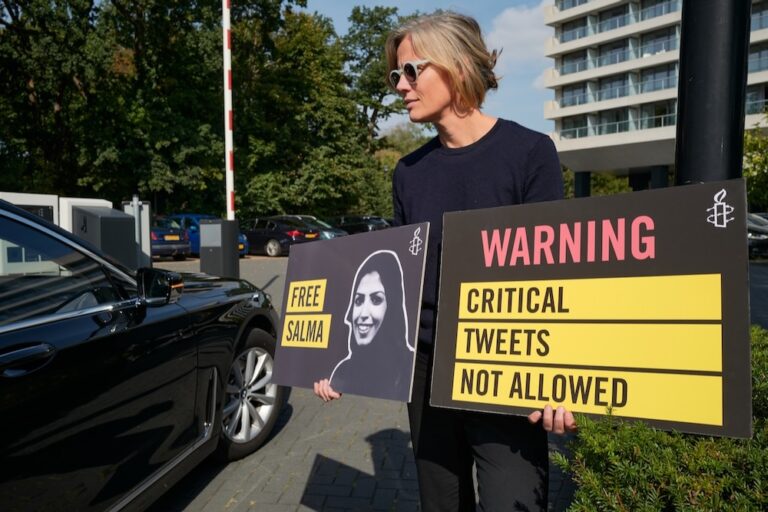"Saudi courts mete out decades long sentences to ordinary citizens for nothing more than peacefully expressing themselves online."
This statement was originally published on hrw.org on 9 July 2024.
Authorities escalate crackdown, transnational repression
A Saudi court has sentenced a man to 20 years in prison on charges related to his peaceful social media activity, Human Rights Watch said today. The conviction is the latest example of Saudi Arabia’s likely transnational repression due to his family member’s activities abroad and yet another escalation in the country’s ever-worsening crackdown on freedom of expression and other basic rights.
On May 29, 2024, Saudi Arabia’s counterterrorism tribunal, the Specialized Criminal Court, convicted Asaad al-Ghamdi, 47, a Saudi teacher, of several criminal offenses related solely to his peaceful expression online. He is the brother of Mohammed al-Ghamdi, a retired Saudi teacher, who was sentenced to death in July 2023 based solely on his posts on X, formerly known as Twitter, and YouTube activity. Saeed bin Nasser al-Ghamdi, a third brother, is a well-known Saudi Islamic scholar and government critic living in exile in the United Kingdom. Saudi authorities often retaliate against the family members of critics and dissidents abroad in an effort to coerce them to return to the country.
“Saudi courts mete out decades long sentences to ordinary citizens for nothing more than peacefully expressing themselves online,” said Joey Shea, Saudi Arabia researcher at Human Rights Watch. “The government should also stop punishing family members of critics living abroad.”
Saudi security forces arrested Asaad al-Ghamdi on November 20, 2022, in a nighttime raid on his home in the al-Hamdaneyah neighborhood of Jeddah, while his wife and children looked on, informed sources told Human Rights Watch. Security forces confiscated electronic devices and ransacked every room of the house. He was not informed of the reasons for the arrest or of the charges against him.
The authorities held him in the Dhahban prison in Jeddah, initially in solitary confinement for three months. Al-Ghamdi was also held incommunicado for nearly two months, and only received his first visit from family members on January 11, 2023.
In a tweet in July 2023 in response to Mohammed al-Ghamdi’s death sentence, Saeed, the third brother, wrote that the “false ruling aims to spite me personally after failed attempts by the investigations to return me to the country.”
Court documents reviewed by Human Rights Watch show that authorities charged Asaad al-Ghamdi with Articles 30, 34, 43, and 44 of Saudi Arabia’s counterterrorism law: the same articles used in July 2023 to sentence his brother Mohammed al-Ghamdi to death. The documents show that Asaad al-Ghamdi was charged with “challenging the religion and justice of the King and the Crown Prince” and “publishing false and malicious news and rumors.” The documents state that al-Ghamdi was arrested “for publishing posts that harmed the security of the homeland on social media websites (Twitter).”
Informed sources told Human Rights Watch that tweets used as evidence against him criticized projects related to Vision 2030, Crown Prince Mohammed bin Salman’s program for diversifying the country’s economy, as well as the recent changes in the Saudi government, referring to “its abandonment of the old religious alliance.” One tweet mourned Dr. Abdallah al-Hamed, the founder of the Saudi Civil and Political Rights Association and a leading Saudi human rights figure who died in prison following his conviction on charges relating to peace peaceful human rights activism, and offered condolences to his family.
The documents cite al-Ghamdi’s X social media posts as evidence against him and sought the maximum penalty for each article he was charged under. The prosecution also asked the authorities to confiscate al-Ghamdi’s mobile device and close his X account, the court documents say.
Saudi authorities held al-Ghamid’s first trial session on September 7, 2023, in Riyadh and only then informed him of the charges against him. The court in late August appointed a lawyer, who later refused to provide him or his family with any court documents related to the case. The lawyer only met al-Ghamdi in court during the trial sessions and never travelled to Jeddah to meet with him outside of the court sessions. The lawyer often refused to meet with his family and failed to share pertinent information about the case with them.
Informed sources said that the lawyer also refused to present evidence of al-Ghamdi’s health condition in court, despite urgings by al-Ghamdi’s family, who apparently believed this could be a useful defense.
Al-Ghamdi suffers from epilepsy, which requires consistent medical attention to manage adequately. He has not received such care during his detention, the informed sources said. In one episode, al-Ghamdi remained unconscious in the bathroom for hours. “He had a spasm and he fell and broke his finger and his tooth,” the source said. “When other inmates saw that he was late in the toilet they went to check on him and found his blood everywhere.” Prison authorities later took him to a general physician in the prison but not a specialist, which he requires.
Informed sources had expressed concern to Human Rights Watch about Asaad’s brother Mohammed, who was sentenced to death based solely on his peaceful social media activity. Mohammad al-Ghamdi also suffers from epilepsy and his health has significantly deteriorated in detention. Sources said that prison authorities ignored Mohammed al-Ghamdi’s repeated requests to see a doctor or visit a hospital until his pain became unbearable. When prison authorities finally allowed him to see a doctor, the general practitioner did not provide him with any medication.
Saudi authorities should immediately provide both Asaad and Mohammad al-Ghamdi with medical attention, including specialists able to treat their health conditions and adequate medications.
Human Rights Watch has repeatedly criticized rampant abuses in Saudi Arabia’s criminal justice system, including long periods of detention without charge or trial, denial of legal assistance, and the courts’ reliance on torture-tainted confessions as the sole basis of conviction. The violations of defendants’ rights are so fundamental and systemic that it is hard to reconcile Saudi Arabia’s criminal justice system with a system based on the basic principles of the rule of law and international human rights standards.
“Yet another outrageous, decades-long sentence demonstrates that the Saudi authorities are willing to crush any and all dissent,” Shea said. “Saudi Arabia’s allies should condemn these sentences and demand that the Saudi government release the prisoners and end their repressive practices.”



